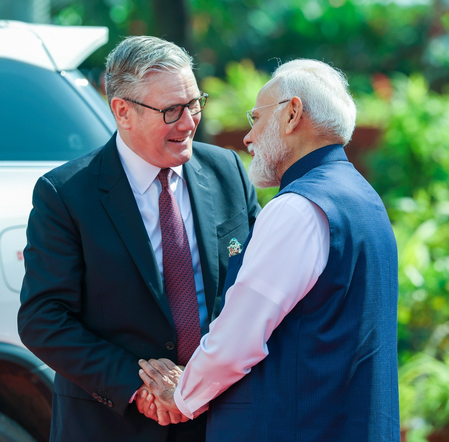
Mumbai — UK Prime Minister Keir Starmer is exploring India’s Aadhaar initiative as a blueprint for a planned nationwide digital identity system in the United Kingdom.
Upon arriving in Mumbai on Tuesday, Starmer met with Nandan Nilekani, Infosys co-founder and former chairman of the Unique Identification Authority of India (UIDAI). According to The Guardian, Downing Street clarified that the meeting was not about any commercial deal with Infosys but to study how India implemented one of the world’s largest digital ID systems.
Starmer has repeatedly cited Aadhaar as a model of success. “We are going to a country, India, where they’ve already done ID and made a massive success of it. So one of the meetings I will be having is about ID, in relation to that,” he told reporters before leaving for Mumbai.
The Prime Minister emphasized that a centralized ID system would simplify life for citizens, whether applying for schools, childcare, or public services.
Last month, Starmer announced that digital ID cards will be mandatory for British citizens and permanent residents seeking employment. However, unlike Aadhaar, the UK system is not expected to use biometric data at this stage, a spokesperson said.
Britain has not had compulsory identity cards since World War II. A previous attempt by former Prime Minister Tony Blair to introduce biometric IDs was abandoned amid public opposition.
During his visit, Starmer also held talks with Indian Prime Minister Narendra Modi on strengthening trade and economic ties. According to a joint statement, the two countries agreed to:
Establish a joint centre for artificial intelligence (AI) and an India-UK connectivity and innovation centre.
Form a critical minerals industry guild to support supply chains and advance green technologies.
Launch new partnerships in renewable energy, health research, and offshore wind development.
Invest jointly in a climate technology startup fund.
The agreements are expected to accelerate bilateral trade, enable the establishment of UK university campuses in India, and enhance collaboration on cutting-edge technologies to promote equitable economic growth and strengthen national security.
With inputs from IANS